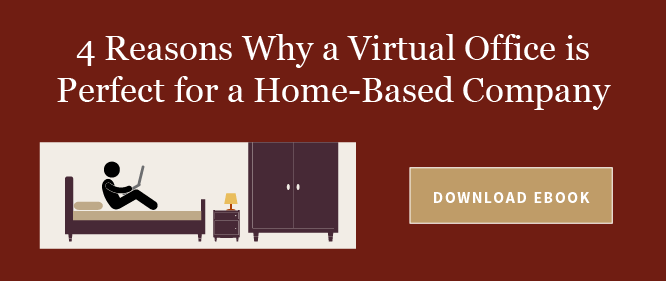Running a startup business is a delicate balancing act. Most startups I’ve known are working with limited funds and other resources, and seem to have an infinite amount of work to get done. Between perfecting your offerings and refining your marketing plan, along with scores of other tasks, it usually feels like there are neither enough hours in the day, nor sufficient manpower to get it all done.
The last thing you need to add to your already-overloaded plate of responsibilities is the management of an office. Frankly, in the early stages of a startup, you most likely don’t need your own office. With a limited number of employees, it’s natural to start out working out of your home, or remotely, or a combination of the two.
Even though you can get a lot of the work of your startup done from your basement, or part-time use of the dining room table, there are some times when you’re going to want a space (and an address) that’s something other than your own residence. A virtual office can be an excellent solution in this regard.
What is a virtual office?
A virtual office is essentially just like a regular office, except that it doesn’t require you to pay the high cost of renting a full-time dedicated office. I don’t think I need to tell you just how high rents can be in the Bay Area. And the last thing your startup needs is the expense of an office that you’re not going to get that much use out of.
What do I get with a virtual office?
When you set up a virtual office space, you’ll get a number of things that will really help your startup on your uphill climb:
- A Professional Address - While you may have enough space at home for the daily tasks in the early days of your startup, it’s less than ideal to use your home address for your business. It’s easy for potential clients to see that you’re using a residential address. And besides, who wants customers showing up at your door and disturbing your family? A virtual office provides a professional address in a business location, which will look so much better on your business cards and marketing collateral.
- A Professional Phone Number and Receptionist - It seems like a small detail, but think about this: do you really want to give out your home phone number to your business contacts? (For that matter, do you even still have a landline at home?). You could, of course, use your cell phone number, but people will recognize that they’re calling your cell as soon as they get your voicemail. A virtual office includes a dedicated number and professional voicemail system, along with a receptionist to take your calls during standard business hours.
- All the Amenities of a “Real” Office - In addition to all the “virtual” features, you’ll have access to everything one could possibly want in an office, including a full suite of office equipment, and meeting space when you need it.
I did mention earlier that there’s one feature that you won’t get when you set up a virtual office: a lot of unneeded space (and a monthly bill for it). Virtual offices can typically be contracted on a month-to-month basis, and don’t require a long-term commitment.
Why not give us a call at 580 Executive Center, and see how our virtual office solutions can help you get your startup off the ground?


